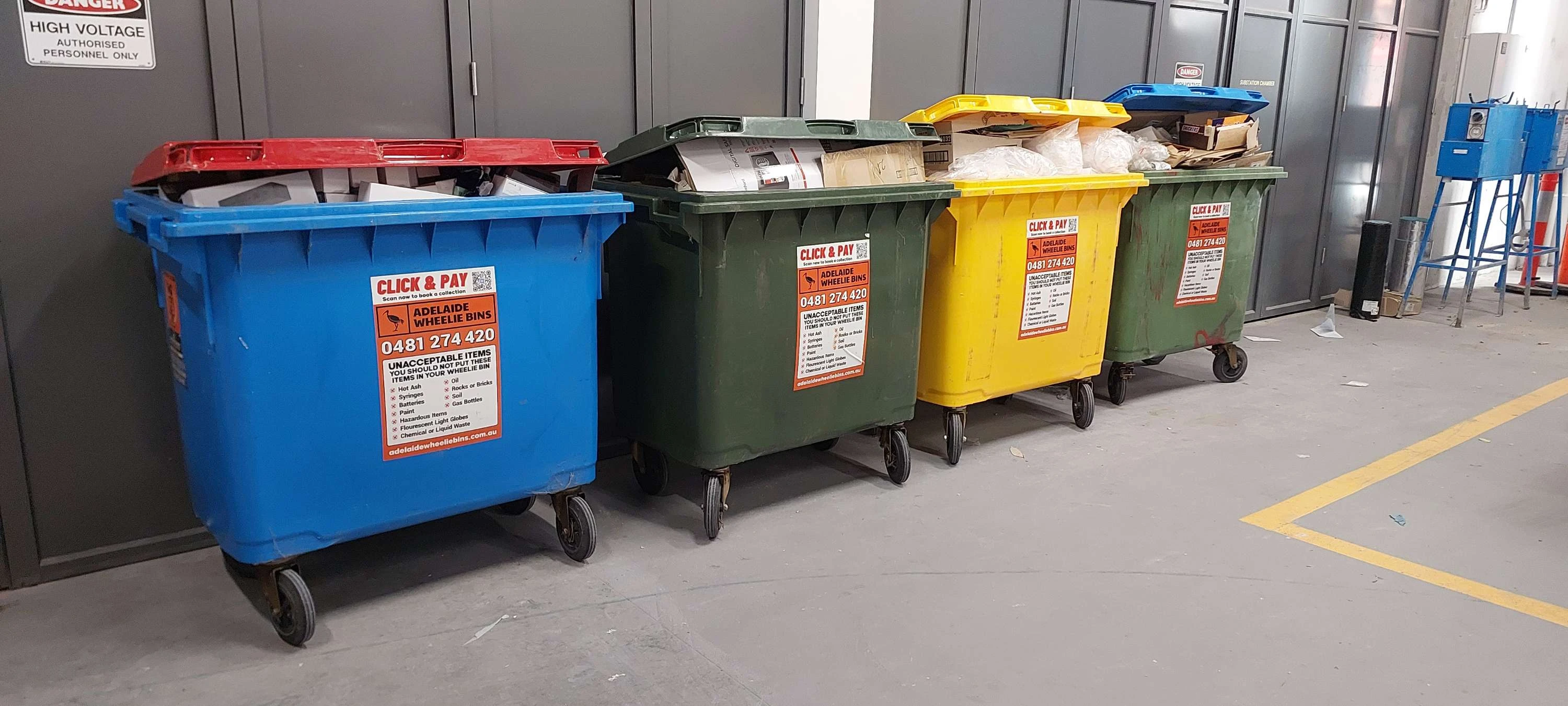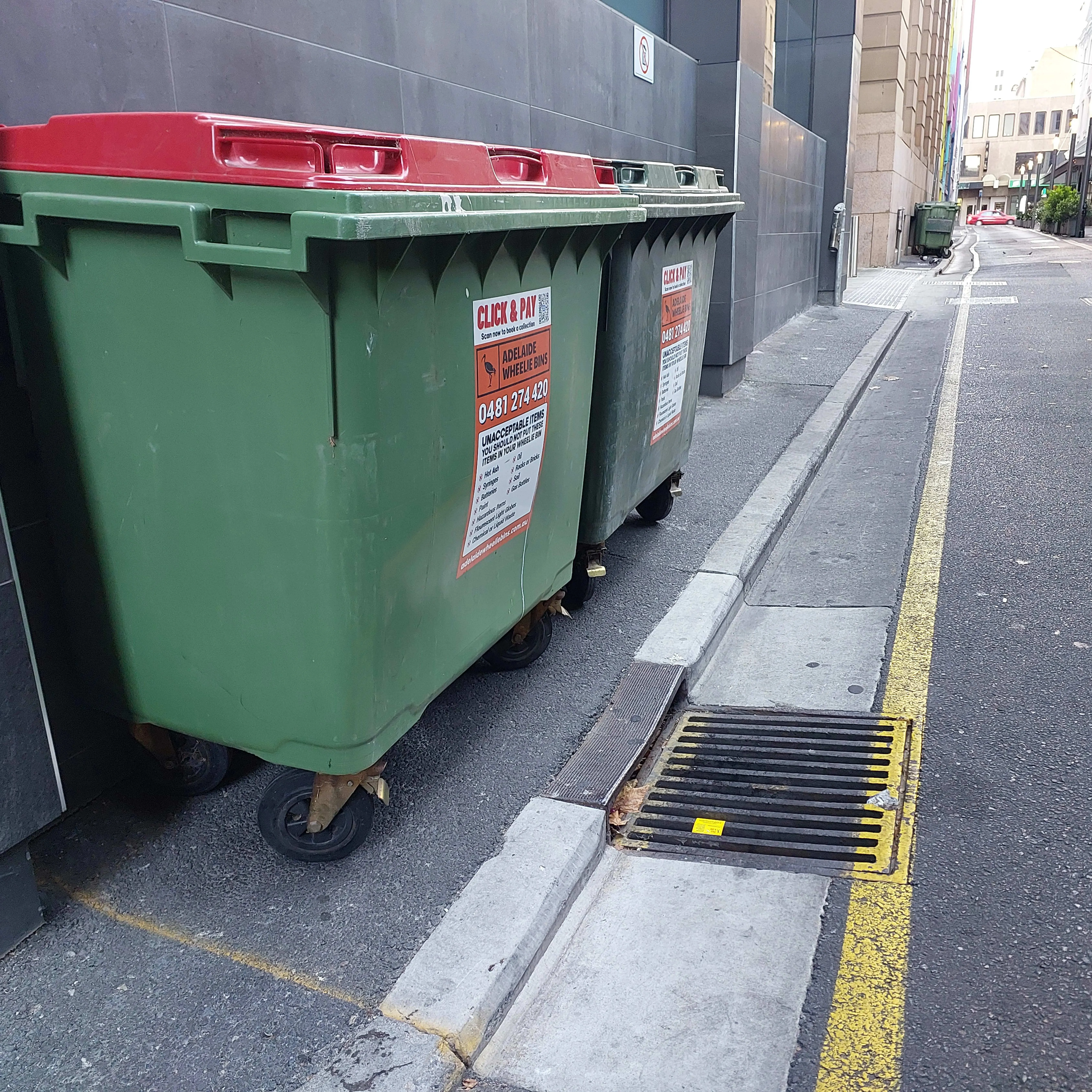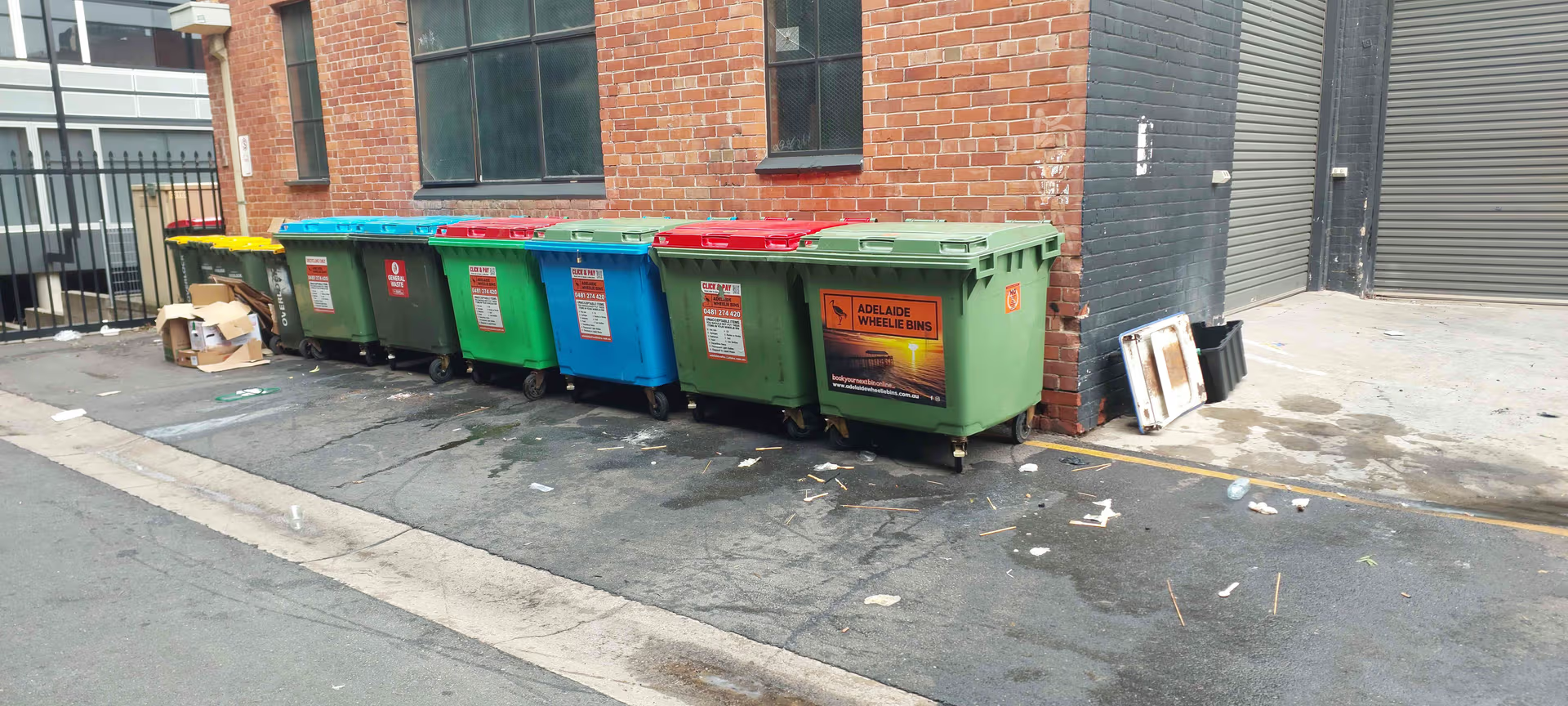Sustainable Waste Management Practices for Adelaide Businesses

Implementing sustainable waste management practices is no longer just an environmental consideration for Adelaide businesses—it's becoming a competitive advantage, cost-saving opportunity, and increasingly, a regulatory requirement. This guide explores practical strategies that businesses across Adelaide can adopt to reduce their environmental impact while potentially improving their bottom line.
The Business Case for Sustainable Waste Management
Before diving into specific practices, it's worth understanding why sustainable waste management makes good business sense:
Cost Reduction
Waste reduction and efficient resource use directly translate to lower disposal costs and reduced material expenses.
Regulatory Compliance
South Australian waste regulations are increasingly focused on sustainability, with potential penalties for non-compliance.
Brand Enhancement
Customers increasingly prefer businesses with demonstrated environmental responsibility, creating marketing and competitive advantages.
Understanding the Waste Hierarchy
Effective sustainable waste management follows the waste hierarchy, a prioritized approach to managing waste:
- Avoid/Reduce: Prevent waste generation in the first place
- Reuse: Use items multiple times before disposal
- Recycle: Convert waste materials into new products
- Recover: Extract energy or resources from waste
- Dispose: Responsible disposal as the last resort
The higher up the hierarchy you can operate, the more sustainable and typically more cost-effective your waste management becomes.
South Australian Context
South Australia leads the nation in recycling and resource recovery, with a current recovery rate of over 80%. The state's Waste Strategy 2020-2025 aims to further reduce waste to landfill and promote circular economy principles, creating both opportunities and responsibilities for Adelaide businesses.
Practical Waste Reduction Strategies for Adelaide Businesses
1. Conduct a Waste Audit
Before implementing changes, understand your current waste profile:
- Identify all waste streams generated by your business
- Quantify volumes and costs associated with each waste type
- Determine which waste streams offer the greatest opportunity for reduction
- Establish baseline measurements to track improvements
2. Implement Source Reduction
Prevent waste before it's created:
- Procurement policies: Choose products with minimal packaging or recyclable materials
- Digital transformation: Reduce paper usage through electronic documentation
- Inventory management: Optimize ordering to prevent excess and expired products
- Equipment maintenance: Extend the life of business assets through proper care
Adelaide Wheelie Bin Hire Sustainability Services
We offer comprehensive waste audits and sustainable waste management planning for Adelaide businesses. Our team can help identify opportunities for waste reduction, implement effective recycling programs, and optimize your waste management for both environmental and economic benefits.
Contact us for a sustainability consultation3. Establish Effective Recycling Systems
Maximize resource recovery through comprehensive recycling:
- Multi-stream recycling: Separate paper/cardboard, glass, plastics, and metals
- Clear signage: Use visual cues and consistent bin colors to prevent contamination
- Staff training: Educate employees on proper sorting practices
- Specialized recycling: Implement programs for e-waste, batteries, and other problematic items
4. Organic Waste Management
For food service businesses and those generating organic waste:
- Food waste prevention: Implement inventory management systems to reduce spoilage
- Donation programs: Partner with food rescue organizations for excess edible food
- Composting: Implement on-site composting or use commercial organic waste collection services
- Staff awareness: Train staff on portion control and food preparation techniques that minimize waste
5. Supplier Engagement
Work with your supply chain to reduce incoming waste:
- Request minimal or recyclable packaging from suppliers
- Implement returnable container systems where feasible
- Choose suppliers with demonstrated sustainability practices
- Collaborate on packaging redesign to reduce waste
Industry-Specific Sustainable Waste Practices
Retail Businesses
- Packaging reduction: Offer minimal packaging options and encourage reusable bags
- Cardboard management: Implement efficient cardboard baling and recycling systems
- Product lifecycle: Consider take-back programs for products at end of life
- Sustainable merchandising: Use recyclable or reusable display materials
Hospitality and Food Service
- Menu planning: Design menus to minimize waste and utilize whole ingredients
- Portion control: Offer different portion sizes to reduce plate waste
- Oil recycling: Implement used cooking oil collection for biodiesel production
- Sustainable serviceware: Choose compostable or reusable dining items
Offices and Professional Services
- Paper reduction: Implement digital document management and double-sided printing
- E-waste management: Establish proper disposal or refurbishment of electronic equipment
- Sustainable procurement: Choose office supplies with recycled content
- Green cleaning: Use environmentally friendly cleaning products to reduce hazardous waste
Manufacturing and Industrial
- Process optimization: Redesign manufacturing processes to minimize waste generation
- Material recovery: Implement systems to capture and reuse production by-products
- Hazardous waste reduction: Substitute hazardous materials with safer alternatives
- Water conservation: Implement water recycling and treatment systems
Implementing a Sustainable Waste Management Program
Follow these steps to develop and implement an effective program for your Adelaide business:
1. Secure Leadership Commitment
Sustainable waste management requires support from the top:
- Engage business owners or senior management in the initiative
- Establish clear goals and resource commitments
- Integrate sustainability into business values and strategy
2. Form a Green Team
Create a cross-functional team to drive implementation:
- Include representatives from different departments
- Assign clear responsibilities for program elements
- Schedule regular meetings to review progress and address challenges
3. Develop an Action Plan
Create a structured approach with:
- Specific, measurable goals (e.g., "Reduce landfill waste by 30% within 12 months")
- Prioritized initiatives based on impact and feasibility
- Timeline with milestones and responsible parties
- Budget allocation for necessary equipment or services
4. Engage and Educate Staff
Employee participation is crucial for success:
- Provide training on waste sorting and reduction practices
- Communicate the business case and environmental benefits
- Recognize and reward positive contributions
- Gather feedback and suggestions for improvement
5. Monitor and Measure Results
Track progress to maintain momentum and identify improvements:
- Establish key performance indicators (KPIs) for waste reduction
- Conduct regular waste audits to measure progress
- Share results with staff and stakeholders
- Celebrate successes and address challenges
Measurement Tip
Track both absolute waste volumes and normalized metrics (e.g., waste per employee or per unit of production) to account for business growth or seasonal fluctuations.
Leveraging South Australian Resources and Incentives
Adelaide businesses can access various resources to support sustainable waste management:
Government Programs
- Green Industries SA: Offers grants, resources, and technical assistance for waste reduction initiatives
- Business Sustainability Program: Provides advice and support for implementing sustainable practices
- Circular Economy Market Development Grants: Funding for innovative waste reduction projects
Industry Associations
- Waste Management and Resource Recovery Association: Industry networking and best practice sharing
- Business SA: Resources and advocacy for sustainable business practices
- Restaurant & Catering SA: Sector-specific sustainability guidance for food businesses
Certification Programs
- Eco-Certification: Recognition for businesses implementing sustainable practices
- B Corp Certification: Comprehensive assessment of environmental and social performance
- Green Star: Ratings for sustainable building operations and management
Overcoming Common Challenges
Anticipate and address these typical obstacles to sustainable waste management:
Space Constraints
Many Adelaide businesses, especially in the CBD, face limited space for multiple waste streams:
- Use space-efficient bin systems designed for multiple waste streams
- Implement waste compaction to reduce volume
- Consider shared waste facilities with neighboring businesses
- Optimize collection frequencies to match space limitations
Staff Engagement
Maintaining consistent participation can be challenging:
- Make sustainable practices as convenient as possible
- Use clear, visual signage with examples of what goes where
- Incorporate waste management into staff onboarding
- Share success stories and progress updates regularly
Cost Concerns
Initial implementation may require investment:
- Start with low or no-cost initiatives to build momentum
- Calculate and communicate the return on investment
- Explore available grants and incentives
- Consider the marketing value of sustainable practices
Future Trends in Sustainable Waste Management
Stay ahead by preparing for these emerging developments:
Circular Economy Integration
Beyond recycling, businesses are finding ways to close the loop:
- Product-as-a-service models that maintain manufacturer responsibility
- Design for disassembly and material recovery
- Industrial symbiosis where one business's waste becomes another's input
Technology Enablement
Digital solutions are transforming waste management:
- IoT-enabled bins that monitor fill levels and contamination
- Blockchain for transparent waste tracking and reporting
- AI-powered sorting systems for improved recycling efficiency
Extended Producer Responsibility
Increasing focus on manufacturer accountability:
- Take-back programs becoming more common and potentially mandatory
- Product stewardship schemes expanding to more industries
- Packaging redesign to eliminate problematic materials
Conclusion: Building a Sustainable Waste Future
Implementing sustainable waste management practices is a journey that offers Adelaide businesses significant benefits—from cost savings and regulatory compliance to enhanced brand reputation and environmental protection. By following the strategies outlined in this guide and leveraging available resources, your business can make meaningful progress toward sustainability goals while potentially improving operational efficiency.
Remember that sustainability is an ongoing process of improvement rather than a destination. Start with manageable changes, measure your progress, and continually refine your approach based on results and emerging best practices.
Adelaide Wheelie Bin Hire is committed to supporting local businesses in their sustainability journey. Our team can provide expert guidance on waste reduction strategies, recycling programs, and efficient waste management systems tailored to your specific needs and industry.
Ready to Make Your Business More Sustainable?
Contact Adelaide Wheelie Bin Hire today to discuss how we can help implement sustainable waste management practices for your business.

